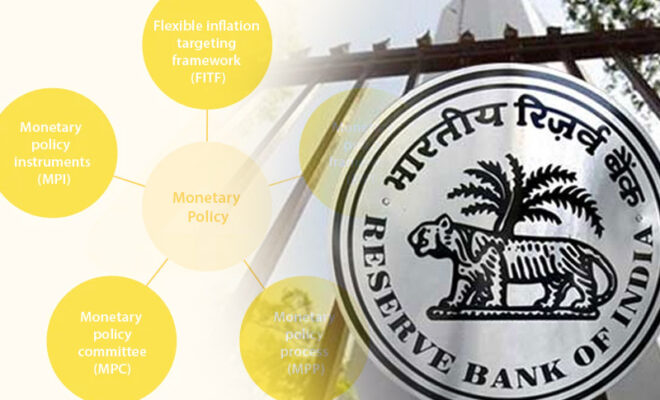What Are The 5 Major Impacts Of RBI Policy Across India?

The Reserve Bank of India (RBI) has announced its third bi-monthly monetary policy for FY24, keeping the repo rate unchanged at 6.5%. The central bank has raised the repo rate by 250 basis points since May 2022.
The RBI is maintaining a pause on policy rates, with a focus on external resilience and core inflation. The recent uptick in food inflation is expected to be short-lived. The RBI is likely to stay on hold for the rest of 2023 and has asked banks to maintain incremental CRR to address surplus liquidity.
- UPI Lite Payments
The RBI has increased the transaction limit of UPI Lite to Rs 500 from Rs 200. UPI Lite is a simplified version of the UPI payment system, introduced by the National Payments Corporation of India (NPCI) and RBI.
The purpose of UPI Lite is to facilitate small-value transactions without facing processing failures.
The RBI also plans to introduce conversational payments using AI technology and offline payments through UPI Lite using Near Field Communication (NFC) technology.
These initiatives will enhance the digital payments experience and deepen the reach of digital payments in India. - FY24 Inflation Projection
The Reserve Bank of India (RBI) has raised the inflation projection to 5.4% due to a spike in vegetable prices, particularly tomatoes.
RBI Governor Shaktikanta Das stated that domestic economic activity is resilient, supported by factors such as recovery in rural incomes and consumer optimism.
However, he also highlighted risks from weak global demand, financial market volatility, and geopolitical tensions. The RBI projects real GDP growth for 2023-24 at 6.5%, with the first quarter at 8%. - Home Loan Borrowers
The Reserve Bank of India has proposed a transparent framework for resetting interest rates on variable-rate loans. The aim is to improve flexibility and transparency for borrowers.
The framework would require lenders to clearly communicate with borrowers, provide options for switching to fixed-rate loans or foreclosure, disclose charges, and ensure proper communication of key information.
This move is intended to strengthen consumer protection. Additionally, the RBI has decided to keep the repo rates unchanged at 6.5%, which is expected to maintain momentum in the housing market and create a conducive environment for investment activities. - Sensex, Nifty Temporary Fall
Domestic equities in India fell after the Reserve Bank of India (RBI) decided to keep the key lending rate unchanged. The BSE Sensex and NSE Nifty both experienced losses.
The RBI Governor mentioned that inflation is expected to rise due to vegetable prices. The RBI raised the CPI inflation forecast for FY 2023-24.
ALSO READ: Sexist or Playful? Rahul Gandhi’s Alleged Flying Kiss Sparks Debate
Broader market indices performed better, with gains seen in sectors such as media, metal, and oil & gas. Private bank stocks dragged down the Sensex, while stocks such as Adani Enterprises and ONGC performed well.



